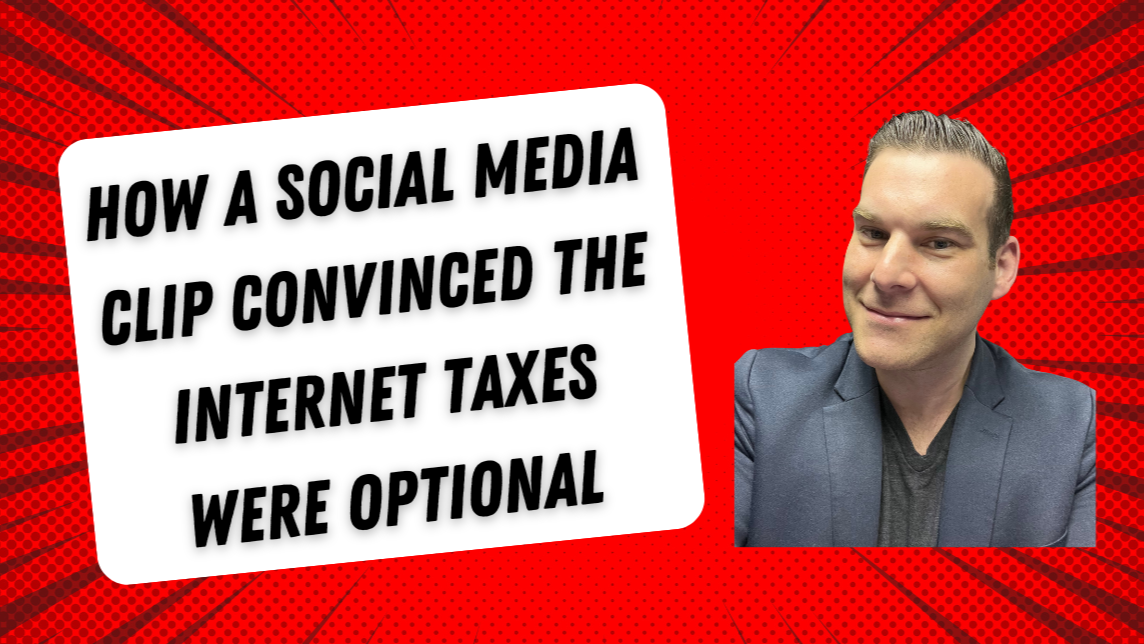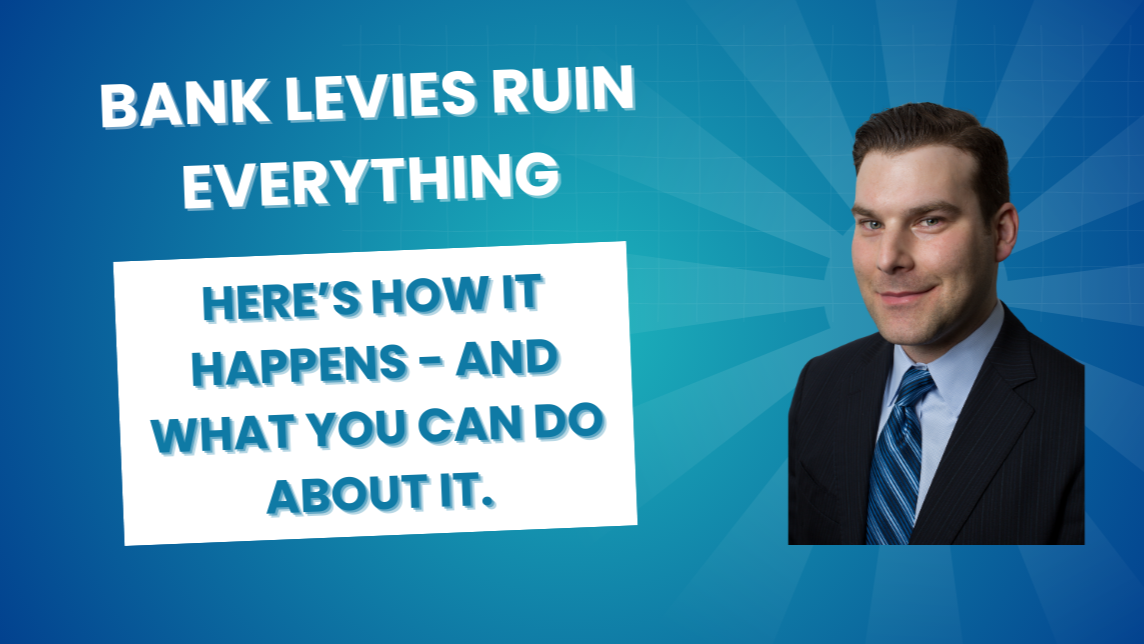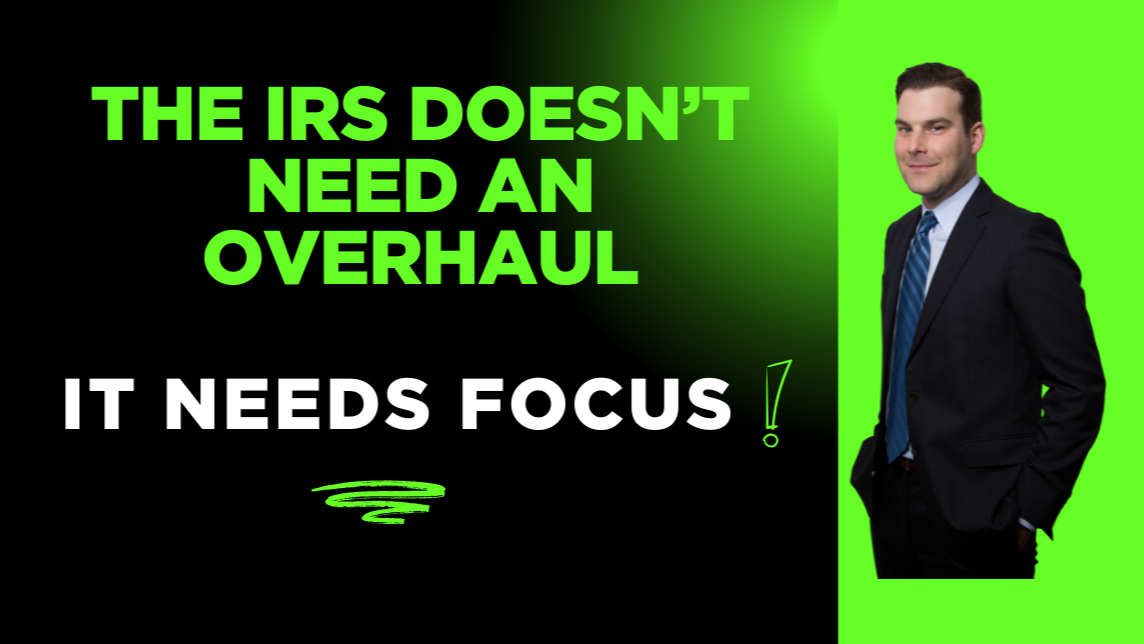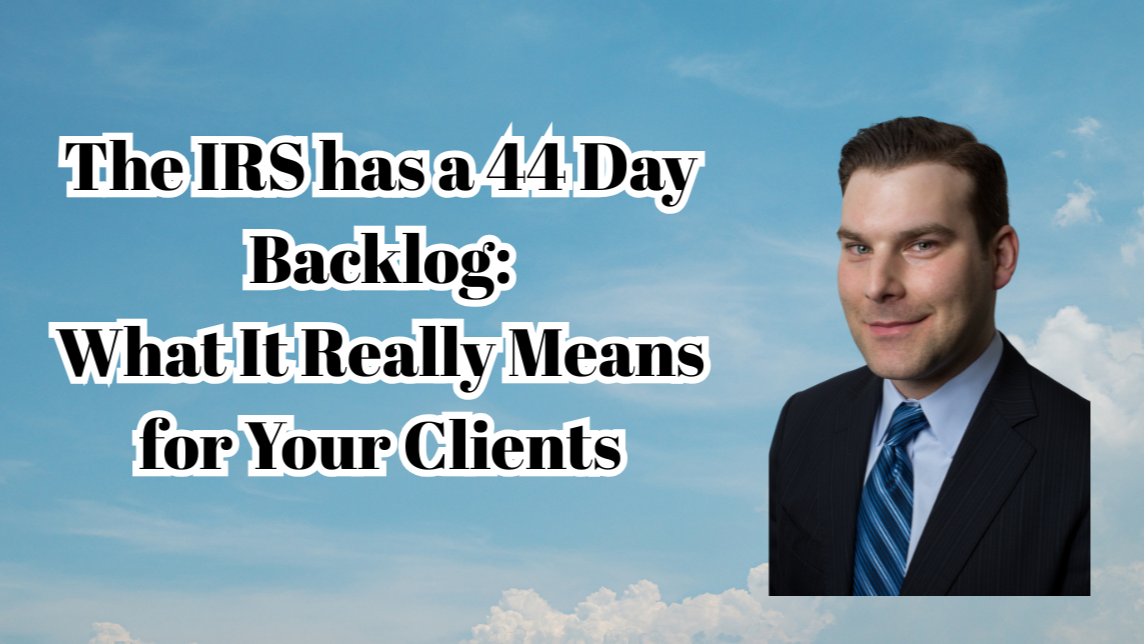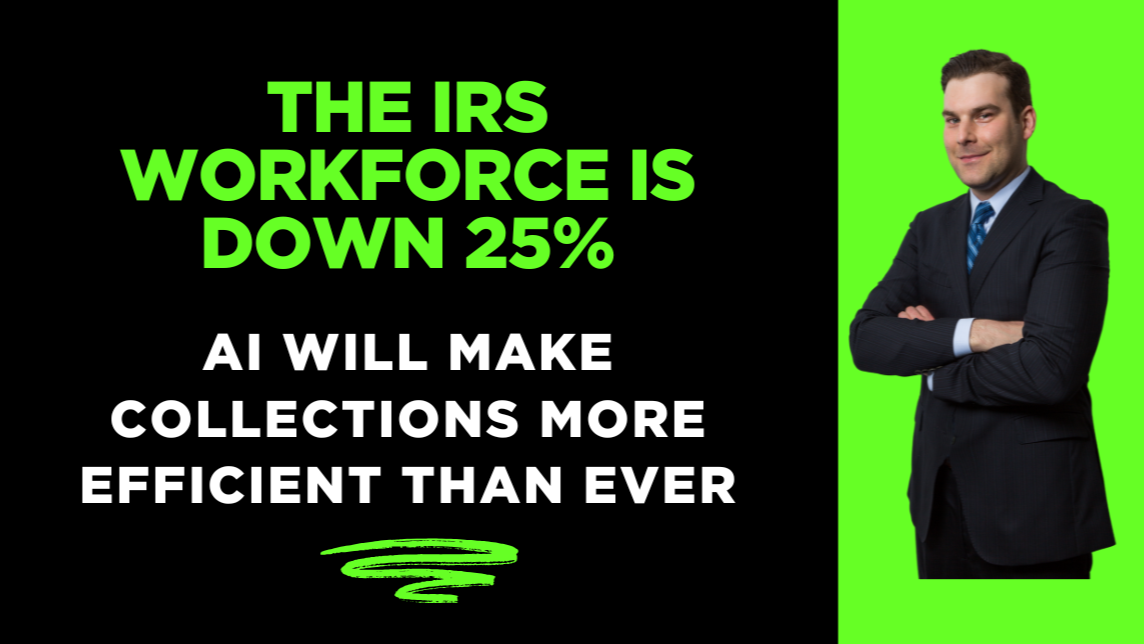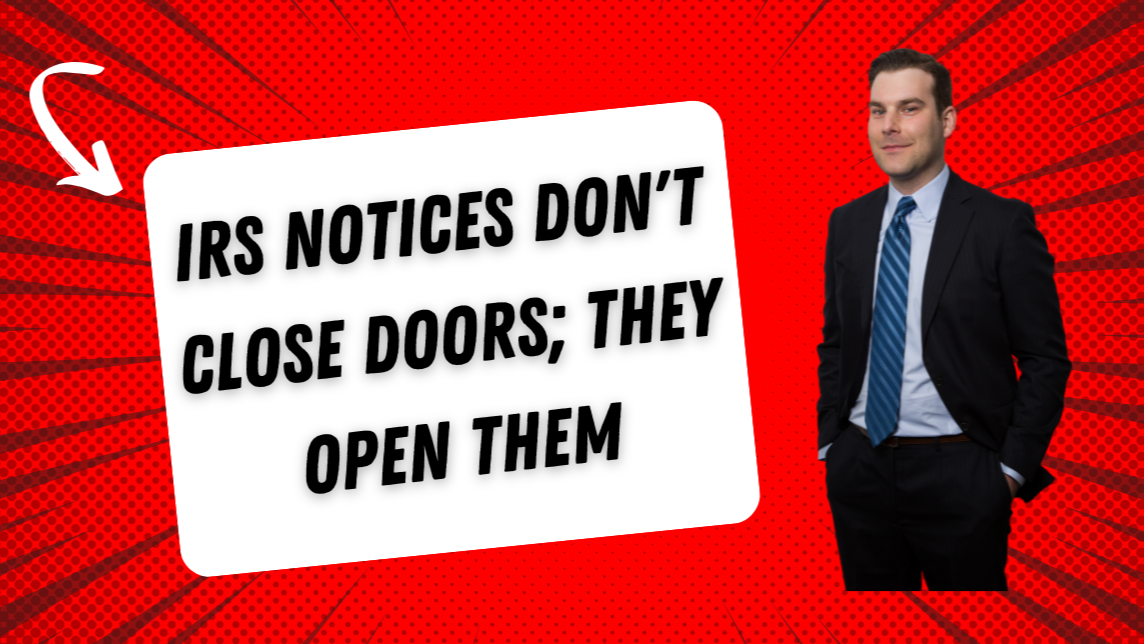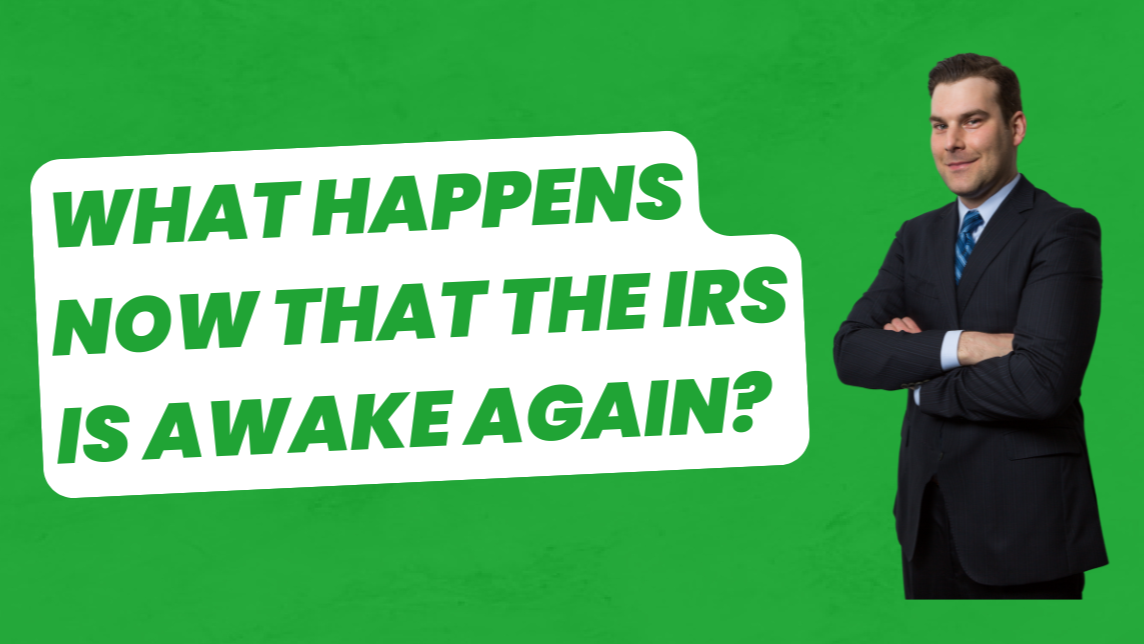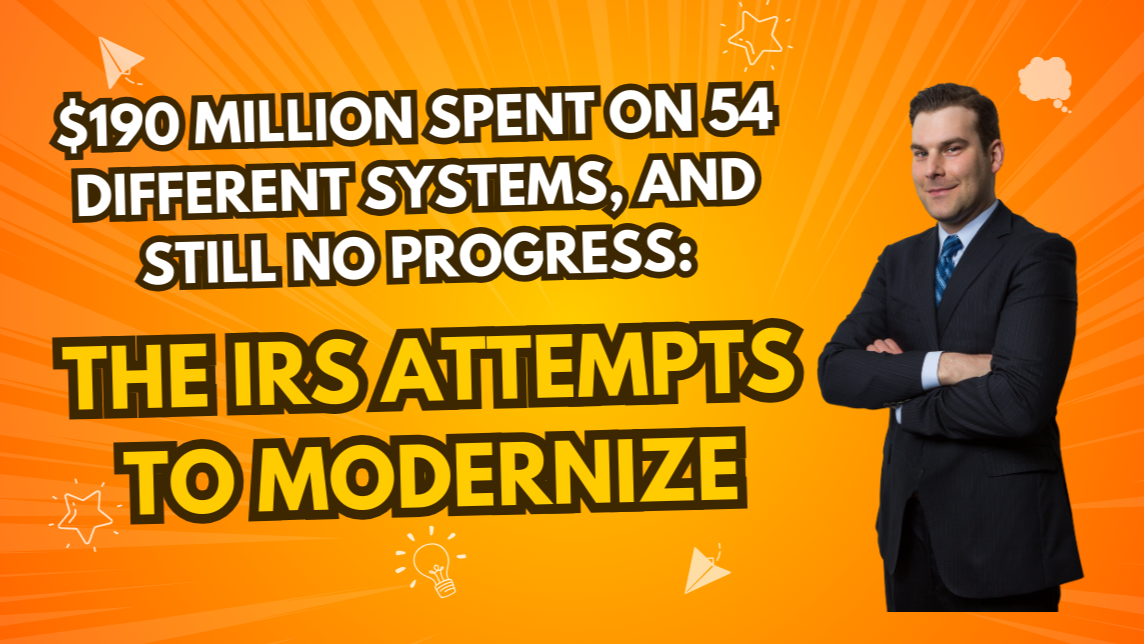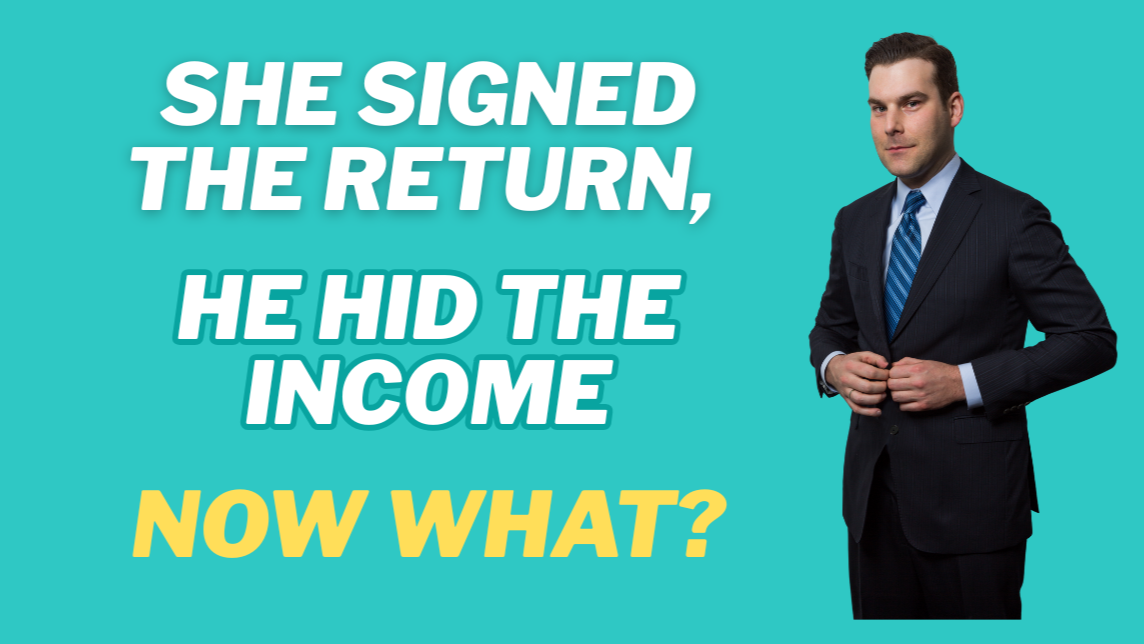Newsletter Articles
How a Social Media Clip Convinced the Internet Taxes Were Optional
A viral social media clip reignited the myth that paying taxes is optional—here’s why that belief is dangerously wrong.
Bank Levies Ruin Everything: Here’s why it happens - and what you can do about it.
IRS bank levies can freeze accounts without warning—but fast, informed action can stop the damage.
The IRS Doesn’t Need An Overhaul: It Needs Focus.
Targeted enforcement, smart automation, and strong taxpayer service are the keys to fixing the IRS.
The IRS has a 44 Day Backlog: What It Really Means for Your Clients
A deep look at how the IRS’s 44-day backlog is disrupting refunds, audits, cash flow, and client confidence.
Joint Doesnt Have to Mean Shared: When Joint Tax Debt Can Be Treated Individually
How IRS mirroring allows joint tax debt to be treated individually when former spouses’ financial realities diverge.
The IRS Workforce is Down 25%. AI Will Make Collections More Efficient Than Ever
Despite fewer IRS staff, AI-powered automation is making tax collections faster, smarter, and less forgiving.
IRS Notices Don't Close the Door; They Open It
Some IRS notices don’t remove options—they create powerful appeal rights that can shift leverage back to the taxpayer.
Why First-Time Business Owners Go Broke While Business is "Thriving."
High revenue can hide cash problems — learn to set tax reserves, plan reinvestment, and manage cash flow to stay solvent.
The IRS Quietly Installed a New Co-Worker — And They're Not Human
The IRS has deployed Salesforce’s Agentforce AI, speeding up case reviews and eliminating delays—meaning faster actions and fewer safety nets for clients with tax issues.
What Happens Now That the IRS is Awake Again?
The IRS is fully operational again, and collection activity is accelerating—here are the five key updates professionals must know to protect their clients.
Should Your Client Take a Personal Loan to Pay the IRS?
When clients panic over IRS debt, a personal loan swaps the IRS for high interest and rigid payments. Professionals: know the risks & discover better IRS alternatives.
Inside the IRS Wage Levy Formula
Discover how the IRS wage levy formula works, why it ignores real expenses, and how it impacts your clients’ financial stability.
Tax Debt and Travel: The IRS Can Cancel Your Passport
Under the FAST Act, taxpayers with over $64,000 in IRS debt risk passport denial or revocation. Learn how certification works and how to fix it fast.
Congress to the IRS: Show Your Work
Congress’s new IRS MATH Act requires the IRS to clearly explain math errors, show calculations, and set clear response deadlines, protecting taxpayers from confusion.
Inside the IRS’s Expanding Surveillance of Crypto Investors
The IRS is intensifying crypto oversight with AI and data tracking. What began as limited audits is now a powerful enforcement system ensuring every digital transaction is traceable.
The IRS Is Under New Management (Again): What Should You Expect?
The IRS names Frank Bisignano as CEO under Scott Bessent, signaling more leadership shifts, automation efforts, and likely delays ahead of the 2026 tax season.
Business Tax Debt: Like Individual Tax Debt But With Much Sharper Edges
Business tax debt hits harder than individual taxes, with payroll penalties and customer-facing IRS actions that can become personal.
The End of Paper Refunds and The Start of The Headaches
As the IRS ends paper refund checks in 2026, missing details and shifting rules could delay critical funds.
$190 Million Spent on 54 Different Systems, and Still No Progress: The IRS Attempts to Modernize
Despite $190 million spent, outdated IRS systems continue to delay cases and increase taxpayer risk.
She Signed the Return, He Hid the Income - Now What
When one spouse hides income, innocent spouse relief may protect the other from devastating IRS liability.
